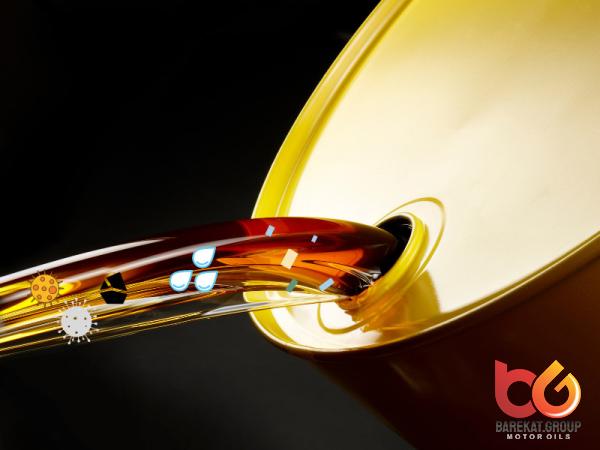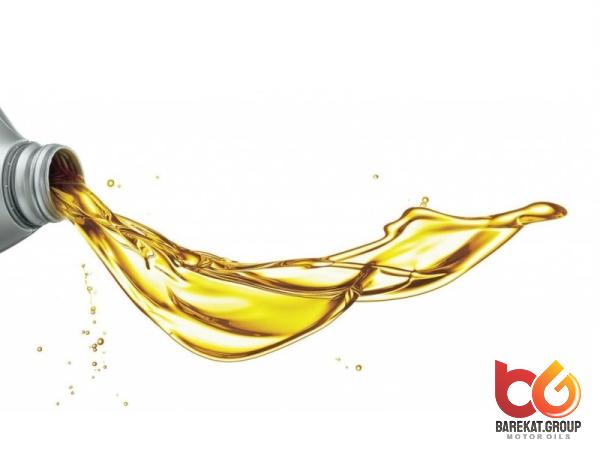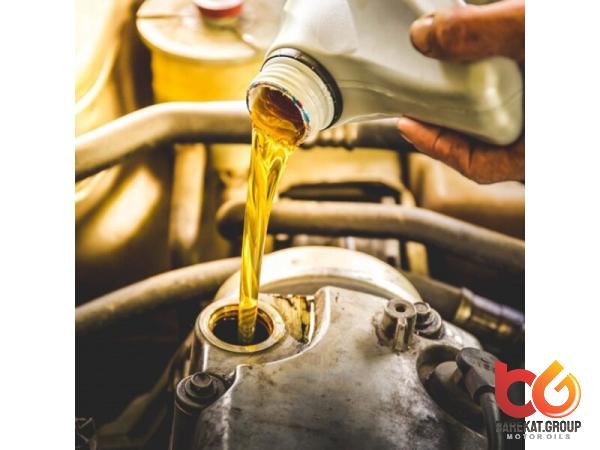Benefits and Considerations Introduction: Motor oil with high zinc content has become a topic of interest among automotive enthusiasts due to its potential benefits for engine performance and longevity. In this article, we will explore the significance of zinc in motor oil, its role in protecting and prolonging engine life, factors to consider when choosing motor oil with high zinc content, and potential concerns associated with its usage. Understanding Zinc’s Role in Motor Oil: Zinc is a key additive in motor oil, specifically in the form of zinc dialkyldithiophosphate (ZDDP), which is a compound containing zinc, phosphorus, and sulfur. It serves as an anti-wear agent, forming a protective layer between metal surfaces and reducing friction, particularly in high-pressure areas within the engine. This protective layer helps prevent metal-to-metal contact, minimizing wear and extending engine life. Benefits of Motor Oil with High Zinc Content: 1. Enhanced Engine Protection: The primary advantage of motor oil with high zinc content is improved engine protection, especially in older vehicles or high-performance engines. The elevated level of zinc provides increased wear resistance, crucial for preventing metal-to-metal contact and reducing potential damage to engine components. 2. Extended Engine Life: By minimizing wear and tear on critical engine parts, motor oil with high zinc content contributes to prolonging the overall life of an engine. This is particularly valuable in applications where engines endure excessive heat, high RPMs, or heavy loads, as these conditions intensify wear and demand superior lubrication. 3. Improved Performance under Stress: High zinc content in motor oil enhances its ability to withstand extreme operating conditions, such as prolonged idling, stop-and-go traffic, and towing heavy loads. This increased resilience ensures optimal engine performance even in demanding situations, promoting a smoother and more reliable driving experience.
Engine oil
 4. Compatibility with Older Engines: Classic cars and vintage vehicles often feature flat-tappet camshaft designs, which are more susceptible to wear due to lower lifter profiles. Motor oil with high zinc content can provide the necessary protection for these older engines, which were designed with higher levels of zinc in mind. Using oils with low zinc content may result in premature wear and damage to such engines. Considerations when choosing Motor Oil with High Zinc Content: 1. Engine Type and Age: While high zinc content may offer added benefits for older or high-performance engines, it may not be necessary for newer engines with advanced metallurgy and tighter tolerances. Understanding your specific engine’s requirements and consulting the manufacturer’s recommendations is crucial to ensure the right oil is chosen. 2. Usage and Conditions: The type of driving, such as regular commuting versus heavy-duty or performance-oriented usage, influences the need for increased zinc content in motor oil. Frequent idling, stop-and-go traffic, and towing activities place more stress on the engine, necessitating oil with higher levels of wear protection. 3. Oil Change Interval: High zinc content oils can be pricier compared to conventional oils, and their extended performance often correlates with longer oil change intervals. Considerations regarding cost and maintenance schedules should be factored in when opting for motor oil with high zinc content. 4. Warranty Considerations: It is important to note that using motor oil with high zinc content may void certain vehicle warranties. Some automotive manufacturers recommend specific oil formulations to maintain warranty coverage. Before making any changes, it is advisable to consult the vehicle’s manual or contact the manufacturer for guidance. Potential Concerns and Precautions: While motor oil with high zinc content offers various benefits, there are a few potential concerns and precautions to keep in mind: 1. Catalytic Converters: High zinc levels can potentially harm catalytic converters, as the zinc compounds may coat the catalyst surface and reduce its effectiveness.
4. Compatibility with Older Engines: Classic cars and vintage vehicles often feature flat-tappet camshaft designs, which are more susceptible to wear due to lower lifter profiles. Motor oil with high zinc content can provide the necessary protection for these older engines, which were designed with higher levels of zinc in mind. Using oils with low zinc content may result in premature wear and damage to such engines. Considerations when choosing Motor Oil with High Zinc Content: 1. Engine Type and Age: While high zinc content may offer added benefits for older or high-performance engines, it may not be necessary for newer engines with advanced metallurgy and tighter tolerances. Understanding your specific engine’s requirements and consulting the manufacturer’s recommendations is crucial to ensure the right oil is chosen. 2. Usage and Conditions: The type of driving, such as regular commuting versus heavy-duty or performance-oriented usage, influences the need for increased zinc content in motor oil. Frequent idling, stop-and-go traffic, and towing activities place more stress on the engine, necessitating oil with higher levels of wear protection. 3. Oil Change Interval: High zinc content oils can be pricier compared to conventional oils, and their extended performance often correlates with longer oil change intervals. Considerations regarding cost and maintenance schedules should be factored in when opting for motor oil with high zinc content. 4. Warranty Considerations: It is important to note that using motor oil with high zinc content may void certain vehicle warranties. Some automotive manufacturers recommend specific oil formulations to maintain warranty coverage. Before making any changes, it is advisable to consult the vehicle’s manual or contact the manufacturer for guidance. Potential Concerns and Precautions: While motor oil with high zinc content offers various benefits, there are a few potential concerns and precautions to keep in mind: 1. Catalytic Converters: High zinc levels can potentially harm catalytic converters, as the zinc compounds may coat the catalyst surface and reduce its effectiveness.
Specifications of Engine oil
 If you have a vehicle equipped with a catalytic converter, it is essential to ensure the oil chosen maintains compatibility. 2. Used in Moderation: It is not always necessary to use motor oil with extremely high zinc content, as excessive levels can create deposits and adversely affect engine performance. Striking a balance between wear protection and oil quality is important to avoid any negative consequences. 3. Proper Maintenance: While motor oil with high zinc content can provide superior protection, it is not a substitute for regular and proper engine maintenance. Routine oil changes, using the appropriate oil filter, and addressing any underlying engine issues are essential to ensure optimal performance and longevity. Conclusion: Motor oil with high zinc content offers several advantages for engine protection, particularly in older or high-performance vehicles. Its ability to minimize wear, extend engine life, and improve performance under strenuous conditions makes it a preferred choice for many enthusiasts. However, considerations such as engine type, usage, warranty implications, and potential concerns related to catalytic converters should be carefully evaluated before opting for motor oil with high zinc content. Ultimately, striking the right balance between wear protection and engine maintenance practices is crucial for achieving optimal engine performance and longevity.Motor Oil with High Zinc Content: Benefits and Considerations I. Importance of Zinc in Motor Oil Zinc, in the form of zinc dialkyldithiophosphate (ZDDP), plays a critical role as an additive in motor oil. It acts as an anti-wear agent, forming a protective layer between metal surfaces and reducing friction. This protective layer helps minimize wear, prevents metal-to-metal contact, and extends the life of engine components. II. Enhanced Engine Protection One of the primary benefits of motor oil with high zinc content is improved engine protection. The increased level of zinc provides superior wear resistance, particularly in older vehicles or high-performance engines. This added protection helps prevent premature wear and potential damage to vital engine parts.
If you have a vehicle equipped with a catalytic converter, it is essential to ensure the oil chosen maintains compatibility. 2. Used in Moderation: It is not always necessary to use motor oil with extremely high zinc content, as excessive levels can create deposits and adversely affect engine performance. Striking a balance between wear protection and oil quality is important to avoid any negative consequences. 3. Proper Maintenance: While motor oil with high zinc content can provide superior protection, it is not a substitute for regular and proper engine maintenance. Routine oil changes, using the appropriate oil filter, and addressing any underlying engine issues are essential to ensure optimal performance and longevity. Conclusion: Motor oil with high zinc content offers several advantages for engine protection, particularly in older or high-performance vehicles. Its ability to minimize wear, extend engine life, and improve performance under strenuous conditions makes it a preferred choice for many enthusiasts. However, considerations such as engine type, usage, warranty implications, and potential concerns related to catalytic converters should be carefully evaluated before opting for motor oil with high zinc content. Ultimately, striking the right balance between wear protection and engine maintenance practices is crucial for achieving optimal engine performance and longevity.Motor Oil with High Zinc Content: Benefits and Considerations I. Importance of Zinc in Motor Oil Zinc, in the form of zinc dialkyldithiophosphate (ZDDP), plays a critical role as an additive in motor oil. It acts as an anti-wear agent, forming a protective layer between metal surfaces and reducing friction. This protective layer helps minimize wear, prevents metal-to-metal contact, and extends the life of engine components. II. Enhanced Engine Protection One of the primary benefits of motor oil with high zinc content is improved engine protection. The increased level of zinc provides superior wear resistance, particularly in older vehicles or high-performance engines. This added protection helps prevent premature wear and potential damage to vital engine parts.
Buy Engine oil
 III. Prolonged Engine Life By reducing wear and tear on critical engine components, motor oil with high zinc content contributes to prolonging the overall life of an engine. This is especially valuable for engines that endure excessive heat, high RPMs, heavy loads, or challenging operating conditions. The protective properties of high zinc content oils ensure optimal engine performance and longevity. IV. Performance under Stressful Conditions Motor oil with high zinc content offers improved performance under demanding situations. Engines subjected to prolonged idling, stop-and-go traffic, towing, or rigorous driving conditions require enhanced wear protection. Higher zinc levels in the oil enable it to withstand extreme pressures and temperatures, providing superior lubrication and reducing friction. V. Compatibility with Older Engines Classic cars and vintage vehicles often feature flat-tappet camshaft designs, which are prone to wear due to lower lifter profiles. These engines were designed with higher zinc levels in mind. Using motor oil with high zinc content is crucial to ensure the necessary protection for such engines. Failing to use oils with sufficient zinc content may result in premature wear and damage. VI. Engine Type and Age Considerations It is important to consider the type and age of the engine when selecting motor oil with high zinc content. While high zinc levels may offer added benefits for older or high-performance engines, newer engines with advanced metallurgy and tighter tolerances may not require such high levels of zinc. Consult the vehicle’s manual or manufacturer’s recommendations to determine the appropriate oil for your specific engine requirements. VII. Usage and Operating Conditions The type of driving and operating conditions also influence the need for motor oil with increased zinc content.
III. Prolonged Engine Life By reducing wear and tear on critical engine components, motor oil with high zinc content contributes to prolonging the overall life of an engine. This is especially valuable for engines that endure excessive heat, high RPMs, heavy loads, or challenging operating conditions. The protective properties of high zinc content oils ensure optimal engine performance and longevity. IV. Performance under Stressful Conditions Motor oil with high zinc content offers improved performance under demanding situations. Engines subjected to prolonged idling, stop-and-go traffic, towing, or rigorous driving conditions require enhanced wear protection. Higher zinc levels in the oil enable it to withstand extreme pressures and temperatures, providing superior lubrication and reducing friction. V. Compatibility with Older Engines Classic cars and vintage vehicles often feature flat-tappet camshaft designs, which are prone to wear due to lower lifter profiles. These engines were designed with higher zinc levels in mind. Using motor oil with high zinc content is crucial to ensure the necessary protection for such engines. Failing to use oils with sufficient zinc content may result in premature wear and damage. VI. Engine Type and Age Considerations It is important to consider the type and age of the engine when selecting motor oil with high zinc content. While high zinc levels may offer added benefits for older or high-performance engines, newer engines with advanced metallurgy and tighter tolerances may not require such high levels of zinc. Consult the vehicle’s manual or manufacturer’s recommendations to determine the appropriate oil for your specific engine requirements. VII. Usage and Operating Conditions The type of driving and operating conditions also influence the need for motor oil with increased zinc content.
Engine oil + buy and sell
 Vehicles exposed to frequent idling, stop-and-go traffic, towing activities, or extreme temperatures place greater stress on the engine. In such cases, high zinc content oil provides the necessary wear protection to ensure optimal engine performance and longevity. VIII. Oil Change Intervals Motor oil with high zinc content typically offers extended performance, which may correlate with longer oil change intervals. However, it is essential to balance maintenance considerations and cost-effectiveness when choosing the oil. Longer intervals must be evaluated based on the vehicle’s requirements and manufacturer’s guidelines to prevent potential engine damage. IX. Warranty Considerations Using motor oil with high zinc content may impact certain vehicle warranties. Some automotive manufacturers recommend specific oil formulations to maintain warranty coverage. Before making any changes to the oil used, consult the vehicle’s manual or contact the manufacturer to ensure compliance. X. Potential Concerns and Precautions While motor oil with high zinc content offers various benefits, there are a few potential concerns and precautions to keep in mind: 1. Catalytic Converters: High zinc levels can potentially harm catalytic converters, as zinc compounds may coat the catalyst surface and reduce its effectiveness. Ensure the oil chosen remains compatible with vehicles equipped with catalytic converters. 2. Moderation: Excessive levels of zinc in motor oil can result in deposits and affect engine performance negatively. It is important to strike a balance between wear protection and oil quality to avoid any adverse consequences. 3. Proper Maintenance: While motor oil with high zinc content provides superior protection, it is not a substitute for regular and proper engine maintenance. Routine oil changes, using the appropriate oil filter, and addressing any underlying engine issues remain essential for optimal engine performance and longevity. Conclusion: Motor oil with high zinc content offers significant benefits for engine protection, particularly in older or high-performance vehicles. Its ability to minimize wear and extend engine life makes it a preferred choice for many enthusiasts. However, considerations such as engine type, usage, warranty implications, and potential concerns related to catalytic converters should be carefully evaluated. Striking the right balance between wear protection and engine maintenance practices is crucial for achieving optimal engine performance and longevity.
Vehicles exposed to frequent idling, stop-and-go traffic, towing activities, or extreme temperatures place greater stress on the engine. In such cases, high zinc content oil provides the necessary wear protection to ensure optimal engine performance and longevity. VIII. Oil Change Intervals Motor oil with high zinc content typically offers extended performance, which may correlate with longer oil change intervals. However, it is essential to balance maintenance considerations and cost-effectiveness when choosing the oil. Longer intervals must be evaluated based on the vehicle’s requirements and manufacturer’s guidelines to prevent potential engine damage. IX. Warranty Considerations Using motor oil with high zinc content may impact certain vehicle warranties. Some automotive manufacturers recommend specific oil formulations to maintain warranty coverage. Before making any changes to the oil used, consult the vehicle’s manual or contact the manufacturer to ensure compliance. X. Potential Concerns and Precautions While motor oil with high zinc content offers various benefits, there are a few potential concerns and precautions to keep in mind: 1. Catalytic Converters: High zinc levels can potentially harm catalytic converters, as zinc compounds may coat the catalyst surface and reduce its effectiveness. Ensure the oil chosen remains compatible with vehicles equipped with catalytic converters. 2. Moderation: Excessive levels of zinc in motor oil can result in deposits and affect engine performance negatively. It is important to strike a balance between wear protection and oil quality to avoid any adverse consequences. 3. Proper Maintenance: While motor oil with high zinc content provides superior protection, it is not a substitute for regular and proper engine maintenance. Routine oil changes, using the appropriate oil filter, and addressing any underlying engine issues remain essential for optimal engine performance and longevity. Conclusion: Motor oil with high zinc content offers significant benefits for engine protection, particularly in older or high-performance vehicles. Its ability to minimize wear and extend engine life makes it a preferred choice for many enthusiasts. However, considerations such as engine type, usage, warranty implications, and potential concerns related to catalytic converters should be carefully evaluated. Striking the right balance between wear protection and engine maintenance practices is crucial for achieving optimal engine performance and longevity.
Your comment submitted.